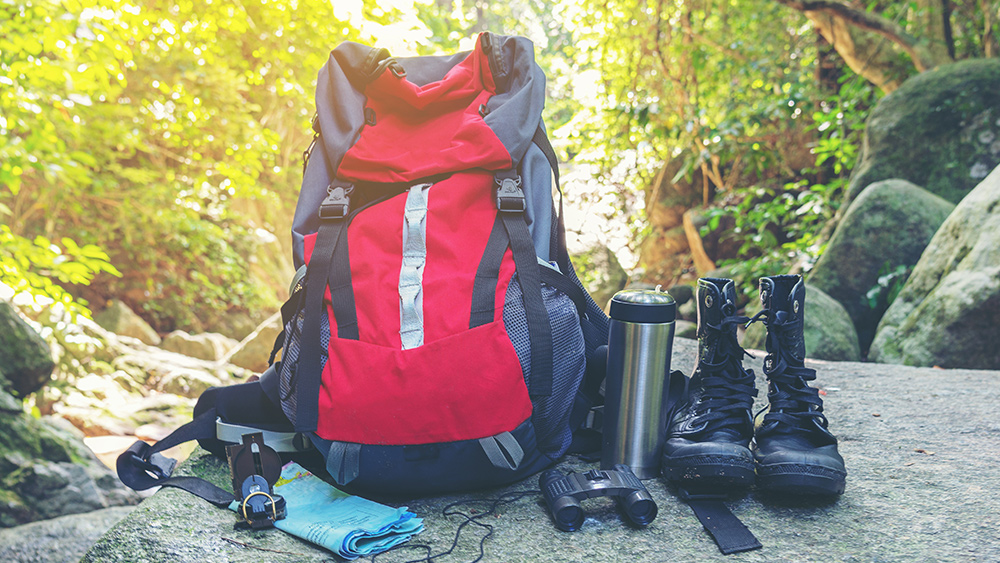
Some people worry that they may need to spend a lot of money to start prepping. But if you're disciplined and hard-working, you can become a prepper without spending too much. Start by learning some prepping and survival skills or bartering with your neighbors. (h/t to FoodStorageMoms.com)
Here are 12 ways to start prepping under a tight budget.
Befriend your neighbors
When disaster strikes, you will have a better chance of surviving when you have people who can help you.
Before SHTF, start getting to know your neighbors. If you live in an apartment complex, create a system so you can help each other in case of an emergency.
If you live in a rural area, talk to everyone in your neighborhood so they know about your plan and tell them how to contact you.
Look for prepper freebies online
Many websites and forums for preppers occasionally offer freebies. Join these groups and watch out for these deals so you can take advantage of them.
Some manufacturers look for people who can test their products and then report back. They give away products if you give them feedback.
Check the Craigslist free section
Craigslist is a website for viewing and posting local advertisements. Check it for postings from people who are giving away items that they no longer want or need.
You might be lucky enough to get free food or prepping supplies.
Scavenge for supplies
Some people will throw away items that are still in working condition. If you don't mind walking around or driving and digging in some dumpsters, start scavenging for supplies and gear.
Use caution and common sense when scavenging. Don't trespass and only take what you need.
Barter with other preppers
Start trading with other preppers with items that are still working fine but you no longer use. You can also offer your skills and services in exchange for supplies.
If you're good at sewing, trade some of your sewing time for food or other gear that you need.
Learn how to forage
If you know how to forage, you can find different foods for free.
However, before you start picking berries or mushrooms in the wilderness, you need to make sure you can properly identify what you want to forage because some of them are poisonous.
Learn important survival skills
It's important to have survival items before disaster strikes, but you also need to know how to use them to avoid accidents.
If you truly want to save money, you can learn different survival skills. In most cases, you only need to set aside some of your time to start learning these skills.
Here are some useful survival skills to learn:
- Basic first-aid skills
- Hunting
- Firestarting
- Fishing
- Foraging
- Herbalism
- Home gardening
- New trades, such as construction, electrical repairs, sewing, or welding
Sign up for a community-supported agriculture program
With a community-supported agriculture (CSA) program, you can have fresh, local produce delivered right to your door. Most areas have a CSA program with affordable prices.
A CSA program is a great way to support local farmers and get access to high-quality products for your family.
If you don't have the budget to join a CSA program, look for neighborhood gardens where you can help grow various plants.
You only need to help maintain the garden by weeding, watering and fertilizing. In return, you can also harvest the food.
Start a home garden
While you do have to spend some money if you want to start a home garden, you just have to spend a little upfront for seeds and tools. Once your plants start to grow, you can start gathering the seeds as part of your harvest so you can enjoy your food for free the next planting and harvesting season.
To make sure you don't spend too much money, start by growing some herbs or vegetables in pots on your porch. Once you get used to gardening, expand your garden and start growing more food in your backyard.
Here's a list of 10 vegetables that beginners can try growing:
Learn how to preserve food
Preserving helps extend the shelf life of the food you already have in your kitchen. (Related: Budget prepping: Ways to make your food budget last longer.)
Air drying, canning, dehydrating and pickling are relatively easy to learn. Start by learning how to dry fruits and vegetables or make your own jams and jellies.
If you have a home garden, you can preserve your excess harvest and sell them to earn extra cash.
Raise chickens
Chickens don't take up a lot of space and they're relatively easy to care for. With chickens, you can have fresh eggs daily.
If you have more space, raise rabbits for both meat and fur. But before you start buying animals, check local regulations regarding having farm birds and animals on your property.
Only buy supplies when stores are holding sales
You will need to buy certain items for your stockpile, but you can save a lot of money by only buying things when stores are holding sales.
Buy items at thrift shops for incredible deals on items that you need. You may also find prepping supplies at garage sales in your area.
Before SHTF, prepare by learning important survival skills and stock up on supplies. Even if you're on a tight budget, you will eventually have enough food in your stockpile if you start today.
Watch the video below to learn how to plant strawberries.
This video is from the Backyard Farming channel on Brighteon.com.
More related stories:
Healthy prepping: 10 Affordable and nutritious foods that have a long shelf-life.
Food supply basics: 11 Foods to stock up on if you’re on a tight budget.
Prepping food supply tips: How to eat healthy on a budget.
Sources include:
Please contact us for more information.




















